Windrush tsar fears repeat of citizenship scandal
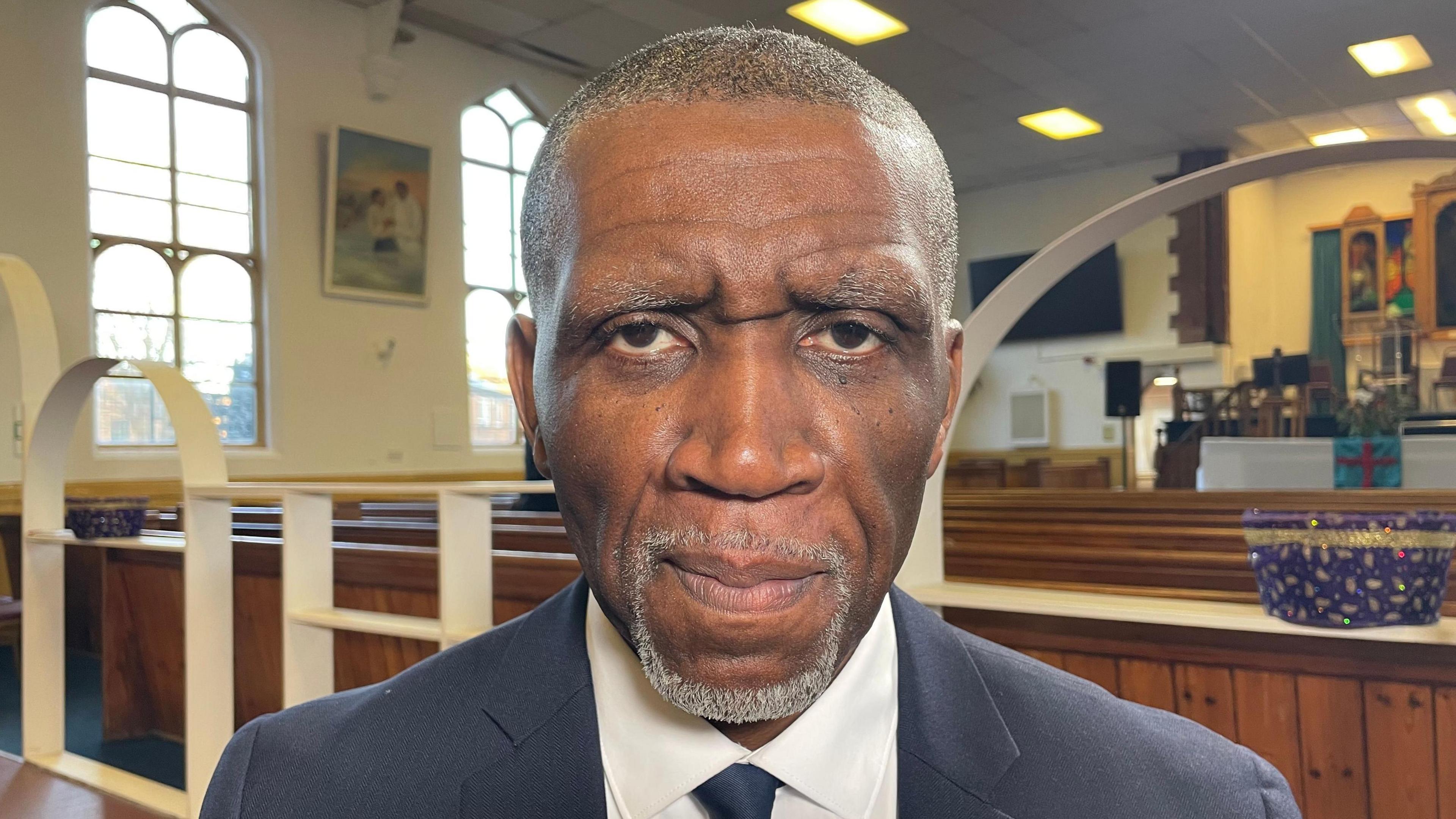
The Reverend Clive Foster was appointed as the first Windrush commissioner in June
- Published
The new Windrush commissioner has warned of the danger of "unintended consequences" from tougher UK asylum laws.
In a wide-ranging BBC interview about his government-appointed role, the Reverend Clive Foster said he wanted discussions with ministers about how to prevent a repeat of the Windrush scandal.
Government proposals designed to tackle illegal migration would give people granted asylum only a temporary refugee status, subject to review every 30 months.
Mr Foster is concerned about potential mistakes and said lessons needed to be learned from Windrush, when thousands of Commonwealth citizens were wrongly classed as illegal immigrants.
The scandal involved people from the Caribbean who responded to an invitation to rebuild the UK after World War Two, but the commissioner said it also affected Commonwealth citizens from Africa and South Asia, particularly Bangladesh.
Many were later denied jobs, housing and NHS treatment and some were wrongly deported because the Home Office failed to keep records or issue paperwork confirming their indefinite leave to remain.
Mr Foster, a senior pastor at the Pilgrim Church in Nottingham, was appointed in June to oversee the government's response to the Windrush scandal and represent its victims.
He has met more than 700 people on a UK-wide Windrush Listening Event tour, where he said some victims wore military medals to show how proud they were to be British.
"I'm hearing the pain, I'm hearing the trauma, and my responsibility is about looking at how we can build relationships, build back trust," he said.
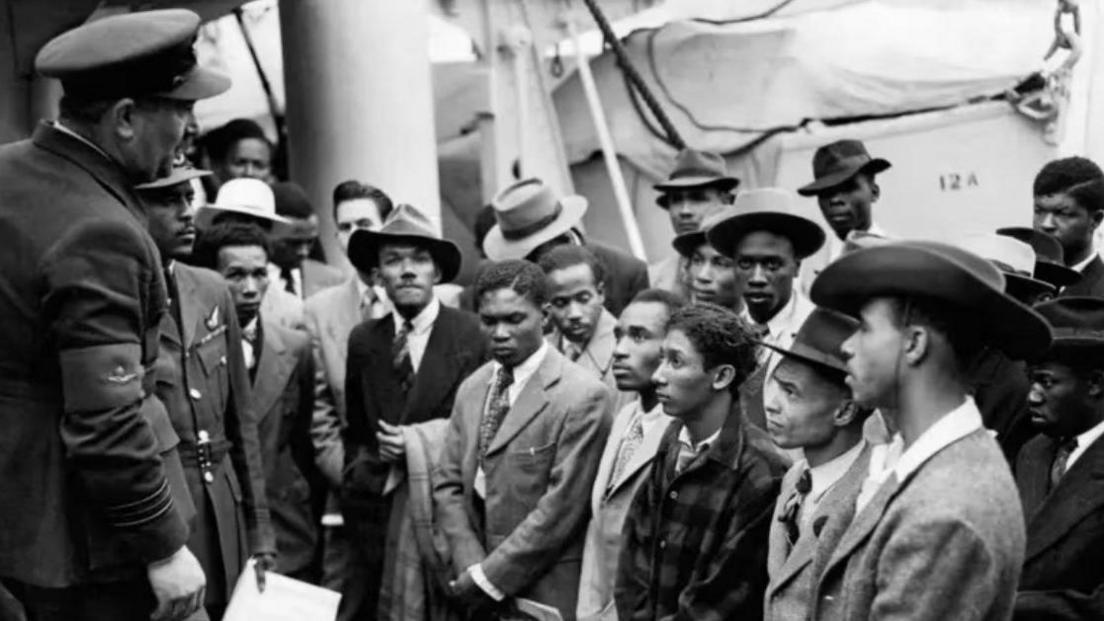
Thousands of Caribbean migrants to the UK were affected by the Windrush scandal
Mr Foster hopes his new role can galvanise people with influence, and revealed that he briefed the King, Queen and the Prince of Wales at Windsor Castle last week.
He said there needed to be more focus on "fairness, compassion and justice", adding he was worried about the impact of increasingly divisive rhetoric.
"On my tour I am hearing people talk about their concern that the hard-won gains over the years of safeguarding citizenship may be lost as a result of this type of rhetoric," he added.
"What's really concerned me is how people feel a disconnection to a country that they should be calling home."
The commissioner told the BBC he also wants assurances that new asylum legislation is designed "with humanity" and "proper stress-testing" to avoid a repeat of the Windrush scandal.
Mr Foster said: "I think it's a danger because there's a political rhetoric and concern about immigration, I really believe we have to learn the lessons of Windrush.
"People who had the legal and moral right to be in the country lost all those rights, people were unintentionally caught up and suffered tremendously, we cannot allow another Windrush scandal."
Will the government's new asylum plans work?
- Published17 November
How many people cross the Channel in small boats?
- Published22 October
Why do Channel migrants want to come to the UK?
- Published9 July
Home Secretary Shabana Mahmood hopes "sweeping reforms" will tackle illegal migration and restore public trust in a system she described as "out of control and unfair".
Under her proposals, asylum seekers accepted as genuine refugees would need to wait 20 years for the right to settle in the UK.
Their temporary immigration status would also be reviewed every two and a half years and could be revoked if their country of origin is deemed safe.
The policy has been inspired by Denmark, where a government led by the centre-left Social Democrats has presided over one of the toughest asylum and immigration systems in Europe.
In Denmark, refugees are given temporary residence permits, typically of two years, and in effect have to re-apply for asylum when they expire.
"What is important is this balance to avoid illegal migration but then at the same time welcome legal migration when it's needed," said Danish Foreign Minister Lars Løkke Rasmussen.
Before announcing her proposals, Mahmood said illegal migration was "tearing the country apart" and that she saw tackling it as a "moral mission".
In response to Mr Foster's concerns, a spokesperson for the Home Office said it was consulting people on how to "get these reforms right", but it had learned lessons from the Windrush scandal to ensure "such an outrage can never happen again".
They added: "This government will not remove indefinite leave to remain from people who have lawfully made this country their home."
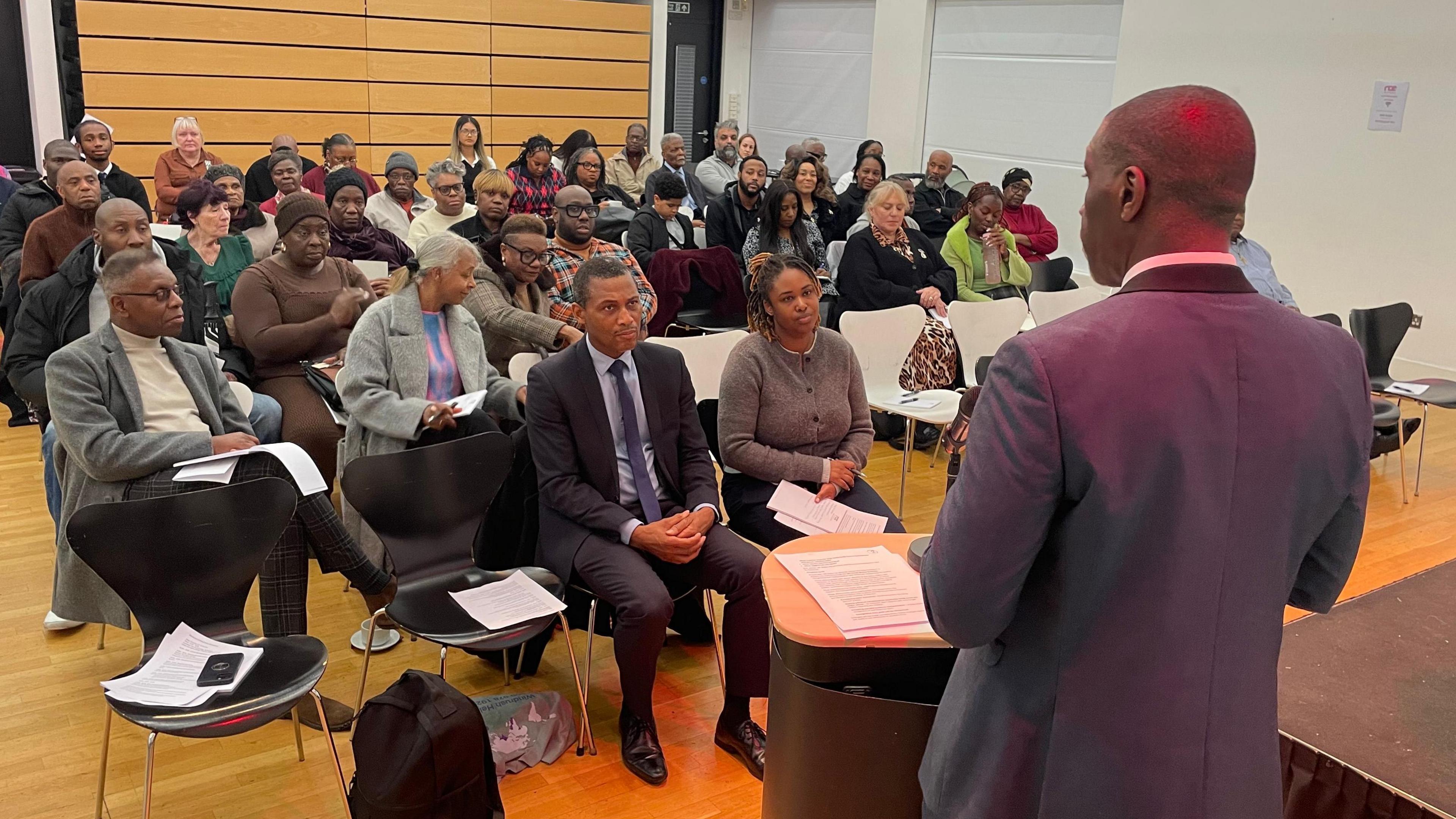
Mr Foster took his Windrush Listening Event tour to Nottingham on Saturday
Mr Foster also raised his fears of a repeat of the Windrush scandal when his UK listening tour came to Nottingham on Saturday.
He said British-born children of Windrush victims had been refused a job or a bank account because they cannot prove their right to UK citizenship.
Tracey Richards told the audience her husband George suffered years of "fear, pain and silence" after struggling to prove his immigration status, decades after arriving from Jamaica as a child.
The commissioner added many elderly victims were still struggling with the trauma of what happened to them and still fighting for compensation.
But he said £118m had now been paid out to victims and he was confident the government was now listening to their concerns after "a long period of injustice".
In October, the Home Office announced it would accept three of his recommendations to improve the Windrush Compensation scheme.
Older applicants now will be prioritised, victims will now be compensated for lost pension contributions and immigration fees, and 75% of a financial offer can be paid before the outcome of any challenge.
Mr Foster said: "My big priority is to continue with the compassion and listening to people and also making sure the compensation scheme is faster, fairer and swifter."
'Look at this with compassion'
The commissioner added HM Passport Office was reviewing its policies after he intervened to help an 80-year-old woman with cancer to return from Ghana.
She was refused permission to return to the UK despite living here legally for more than 60 years.
"I was very deeply concerned," Mr Foster said. "The family was desperate.
"We said to the passport office, 'let's look at this with compassion, and let's get [her] back into the country and then we can sort any technicalities'."
Mr Foster also revealed he now aims to hold overseas Windrush listening events, in countries where people are still struggling to prove their right to UK citizenship.
He said: "People who built their lives here, they've set up families, worked here, and then they've decided to go over to Jamaica for a holiday or family reasons, then they for some reason cannot come back into the country, this is very concerning.
"There are some people who find themselves in pretty dire conditions and situations.
"That's why it's important they understand they still have the legal right to citizenship in the UK, so they can justly be reunited with their families."
Get in touch
Tell us which stories we should cover in Nottingham
Follow BBC Nottingham on Facebook, external, on X, external, or on Instagram, external. Send your story ideas to eastmidsnews@bbc.co.uk, external or via WhatsApp, external on 0808 100 2210.
Related topics
- Published17 July
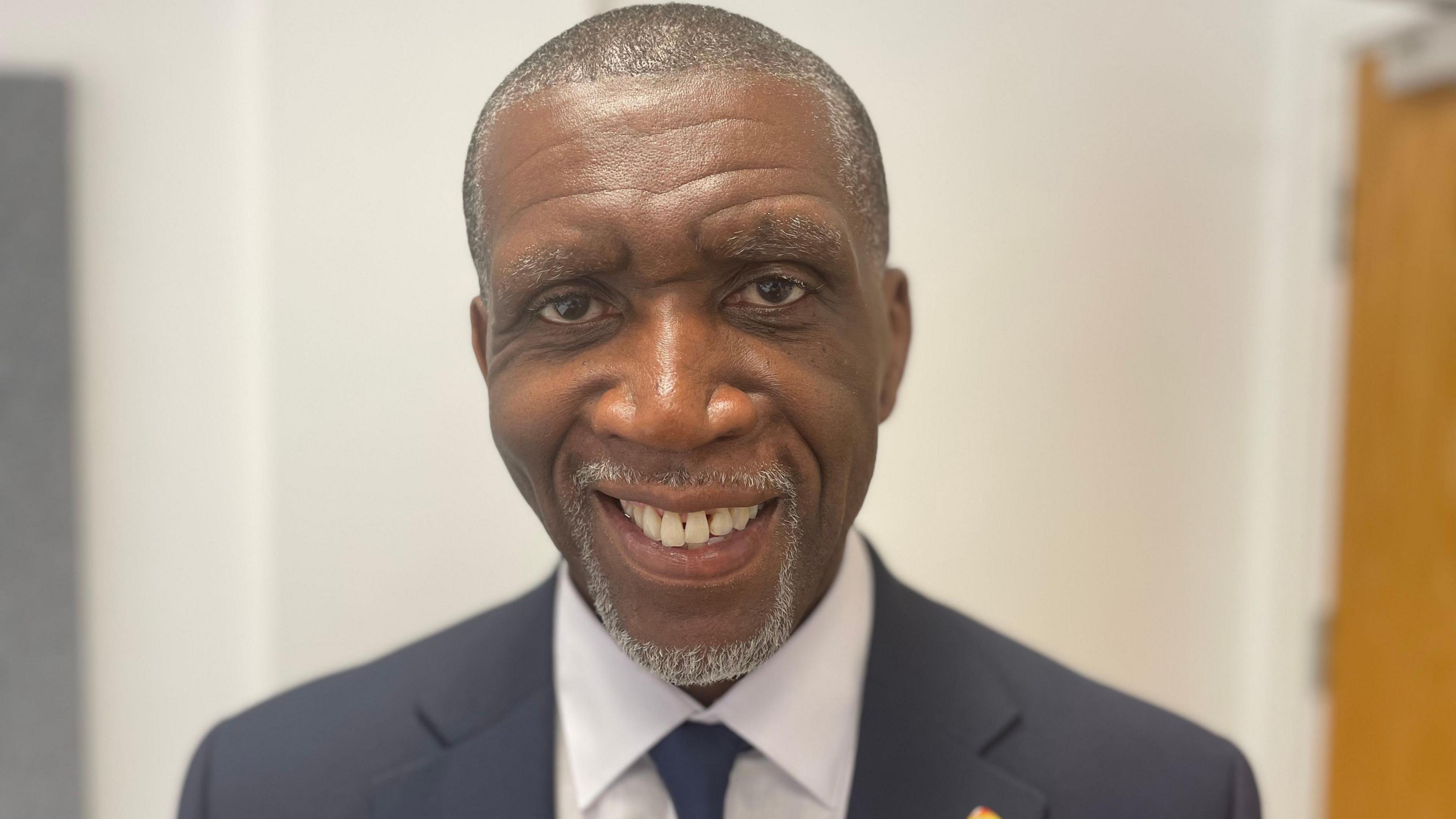
- Published18 June
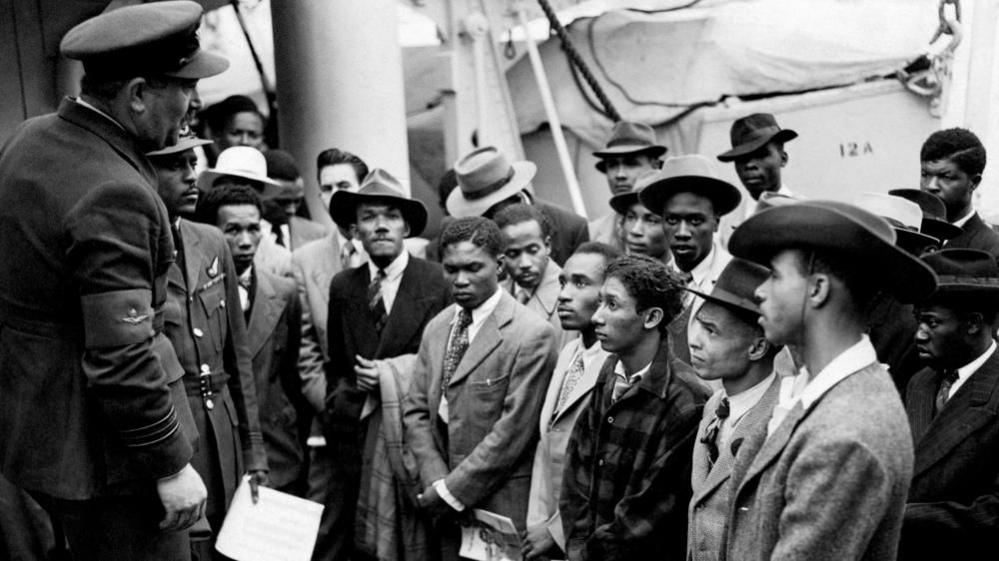
- Published17 November

- Published20 June
